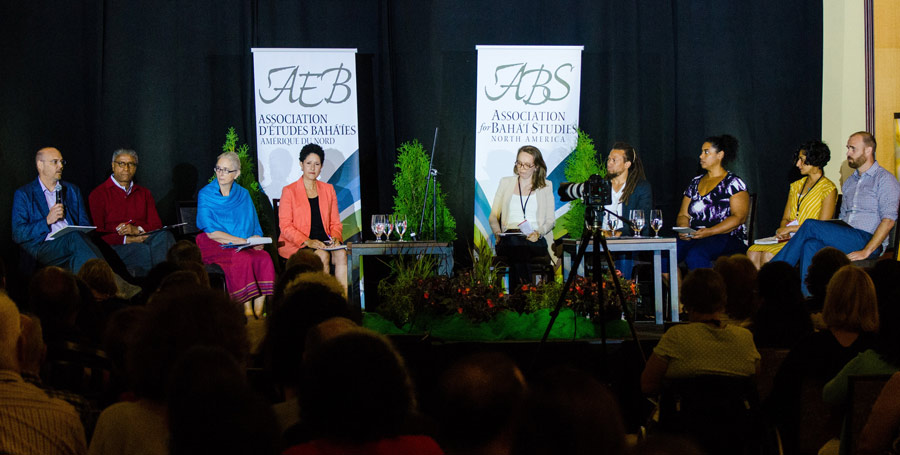In our contemporary world, where myriad challenges manifest within the realms of social, economic, and environmental justice, the need for a coherent framework that encourages collective advancement has never been more pressing. The Bahá’í Faith, founded in the 19th century, offers a profound reservoir of spiritual principles that, if thoughtfully applied, promise to catalyze social progress. Through the lens of Bahá’í studies, one can explore not only these teachings but also their potential practical applications in addressing the complex dynamics of human society.
First and foremost, the core tenet of the Bahá’í Faith emphasizes the oneness of humanity. This principle posits that regardless of nationality, race, or creed, all humans are members of one family. Such a concept is revolutionary, especially in a time characterized by divisive ideologies that foster discord and polarization. By fostering a perception of unity, Bahá’í teachings inspire individuals and communities to transcend parochial interests and embrace collective responsibility. This shift in perspective invites curiosity and encourages a re-examination of conventional narratives surrounding competition and conflict.
The aspiration for unity extends into Bahá’í perspectives on justice. Justice, seen as an unassailable virtue, serves as a foundational principle for societal order and progress. A Bahá’í approach advocates for a systemic restructuring of societal frameworks to ensure fairness at all levels. This includes addressing socio-economic disparities, advocating for gender equality, and reaffirming the rights of marginalized groups. As communities engage with these principles, they create an environment ripe for dialogue and collaboration, ultimately positioning justice as a pillar for sustainable development.
Moreover, Bahá’í teachings underscore the importance of education as a vehicle for transformation. Knowledge is not merely a means to personal advancement; instead, it is paramount to the elevation of society. The Bahá’í perspective posits that education must be holistic, integrating both academic prowess and moral development. This dual approach equips individuals not only with the competencies required to navigate modern complexities but also with the ethical frameworks necessary for responsible citizenship. As societies commit to educational reforms inspired by these Bahá’í principles, a more enlightened populace emerges, one capable of engendering progressive change.
Environmental stewardship is another domain where Bahá’í teachings align with pressing global imperatives. The interconnectedness of humanity demands a concurrent dedication to preserving the planet. Bahá’í literature articulates a profound respect for nature, recognizing the environment not just as a resource but as a sacred trust bestowed upon humanity. The application of principles advocating for sustainable practices and responsible resource management illuminates paths towards ecological equilibrium. Communities that integrate such teachings into their policies and practices often witness transformations that reconcile human activity with environmental sustainability.
Through these diverse threads—unity, justice, education, and environmental stewardship—the essence of Bahá’í studies culminates in a vision for a harmonious future. However, it is not sufficient to merely espouse these principles; there must be a tangible commitment to their implementation. This commitment requires collective action, underscored by a spirit of cooperation and collaboration. It invites individuals from all walks of life to engage with these concepts, fostering innovative partnerships that transcend traditional boundaries.
A pertinent facet of Bahá’í teachings is their forward-looking nature. The Faith advocates for adaptive and progressive approaches, urging followers to embrace new ideas and technologies that can facilitate collective advancement. A transformative paradigm emerges: one that is not shackled by the orthodoxy of the past but is instead motivated by the imperative to innovate for the future. This ethos resonates profoundly in our current age, as technological advancements present both unprecedented challenges and remarkable opportunities for societal growth.
Furthermore, the Bahá’í teachings highlight the essential role of consultation in decision-making processes. The practice is inherently democratic, promoting an inclusive dialogue where every voice is valued. It fosters a culture of mutual respect and understanding, which is critical in navigating the complexities of modern social dynamics. When diverse perspectives converge through consultation, the resulting solutions are often more holistic and effective, better serving the needs of the community as a whole.
In conclusion, the application of Bahá’í spiritual principles offers a compelling framework for addressing the myriad challenges facing humanity today. By embracing concepts such as unity, justice, education, environmental stewardship, and consultation, individuals and communities alike can embark on a journey toward social progress that is both meaningful and transformative. The Bahá’í teachings beckon a shift in perspective—a call to recognize the inherent interconnectedness of life and the shared responsibility toward a better world. As curiosity is piqued and perspectives shift, the potential for collective advancement becomes not just an aspiration but an attainable reality.
